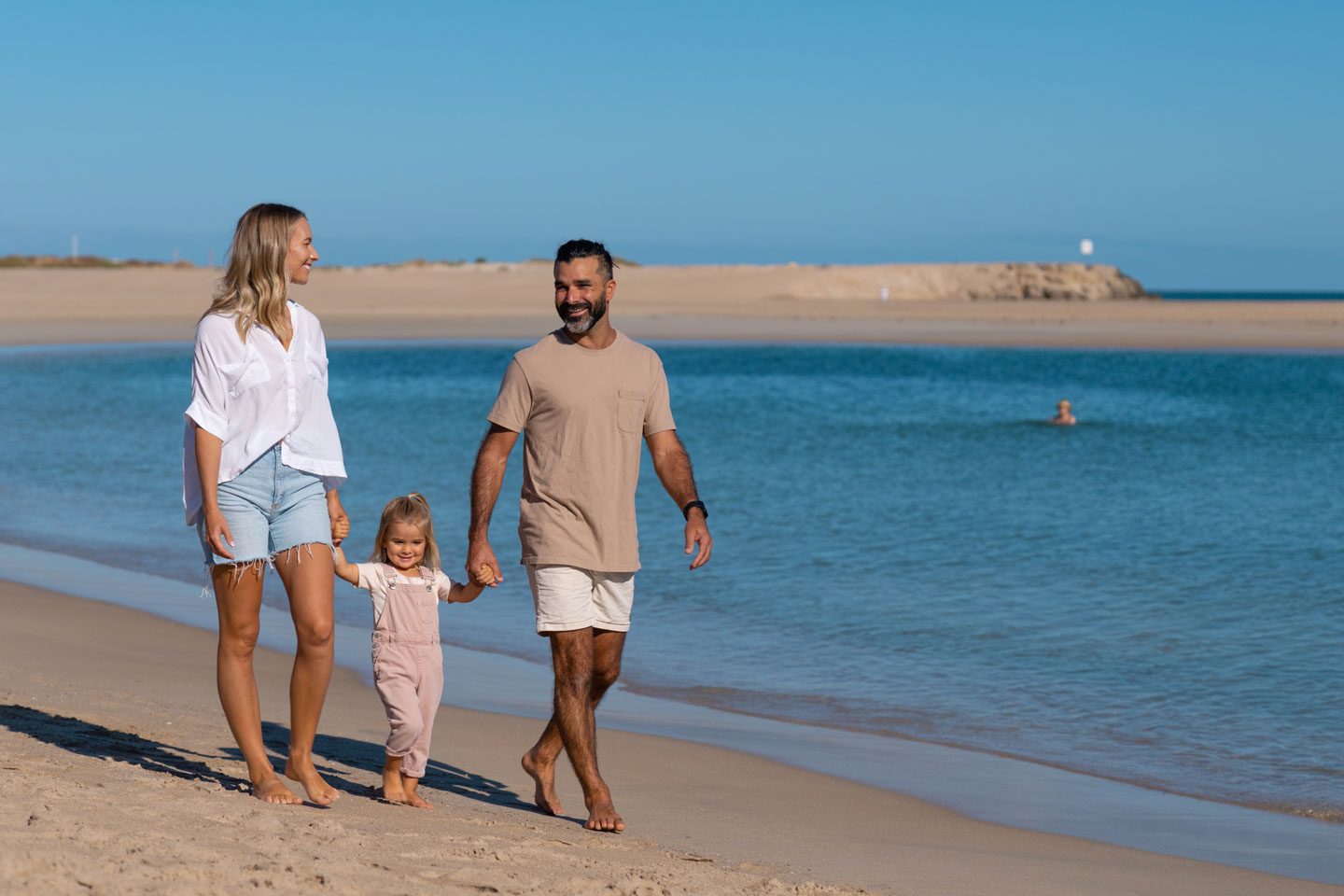

With more and more people embracing the shift towards remote and hybrid ways of working, Mandurah – with its many enticing offerings – is positioning itself as the lifestyle alternative to Perth and other large cities.
The City of Mandurah’s aim is grounded in a changing reality. The pandemic has driven the adoption of digital technologies and accelerated the trends changing the world of work. Last August, more than 40 percent of people regularly worked from home in Australia, up from around 30 percent before the pandemic1. Studies indicate that the average number of work from home days in Australian cities is now between one and two, with those in professional occupations often taking more2.
These trends seem unlikely to reverse. More than half of workers (54 percent) expect a hybrid model of working in 20223 as employees are increasingly seeking jobs with flexible work options and a level of autonomy about when they want to work, and where they want to work from.
These needs are even more acute in the global war for talent. Surveys of US workers suggest 87 percent choose to take up flexible arrangements when they are offered4. This proportion is even higher among those with in-demand Science, Technology, Engineering and Mathematics skills sets.
With regional satellite offices on the rise and hybrid working models the new norm, cities need to change the way they position themselves. A traditional commuter town now needs to provide for larger day-time populations in both residential and commercial precincts. The mass transit systems within our capitals may need to adjust to 3-2-2 working patterns from predictable daily 9-5 peaks.
As Mandurah Mayor Rhys Williams explains, Mandurah has the right canvas to cement itself as the lifestyle alternative to Perth, and harness the opportunities that have emerged around work flexibility since the pandemic.
“In many ways, the pandemic has made us reassess certain parts of our lives and wish to create better harmony between our work life and personal life. Mandurah can provide the perfect solution for this. We see this as an opportunity to stand out in the crowd and say, we can help you achieve that balance,” he said.
“Adapting to the shift towards hybrid working models will underpin Mandurah’s progress for the next 10 to 20 years. It is already contributing to a new wave of population growth, investment, attractions and opportunities.
“Mandurah seeks to embody the principles of the ‘15-minute city’, where work, home, retail, entertainment, education, leisure and restaurants are all in close proximity. It’s about residents being able to access most places they need to go within a 15-minute commute, and is front and centre in all we are doing.
“We’re creating a city that has everything you need right here, from our multi-million-dollar investments in the Mandurah Waterfront, to the Australian-first Giants of Mandurah exhibition, and amending our retail trading hours to provide the flexibility new ways of working require.
“We’re a 50-minute commute to Perth CBD and airport and offer a lifestyle that’s second to none if you’re working from the home or spending time with family and friends.
Mandurah’s population has grown twice as quickly as metropolitan region over the past two years as more and more people search for a lifestyle alternative to Perth and other larger cities. Its natural beauty, convenient location and competitive costing making an attractive case for a sea change.
“The office and coworking space in our City Centre is available for less than half the cost of Perth, and a third compared to a Sydney CBD location, and has a large ready workforce within half an hour of the centre,” Mayor Williams said.
“Investors and those seeking the ultimate coastal lifestyle without the price tag are turning to Mandurah.
“Mandurah is undergoing a rejuvenation, and the combination of our lifestyle offerings, location and affordability ensure Mandurah has the right foundations for everything to come together for a bright future.”
References:
1. Australian Bureau of Statistics (August 2021) Characteristics of employment survey
2. University of Sydney (April 2022) Transport Opinion Survey
3. seek.com.au (February 2022) ‘Why it pays to offer a hybrid work model in 2022’
4. McKinsey & Company (article June 2022) American Opportunity Survey













